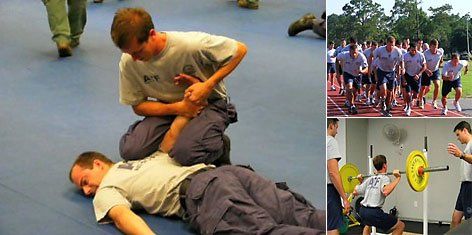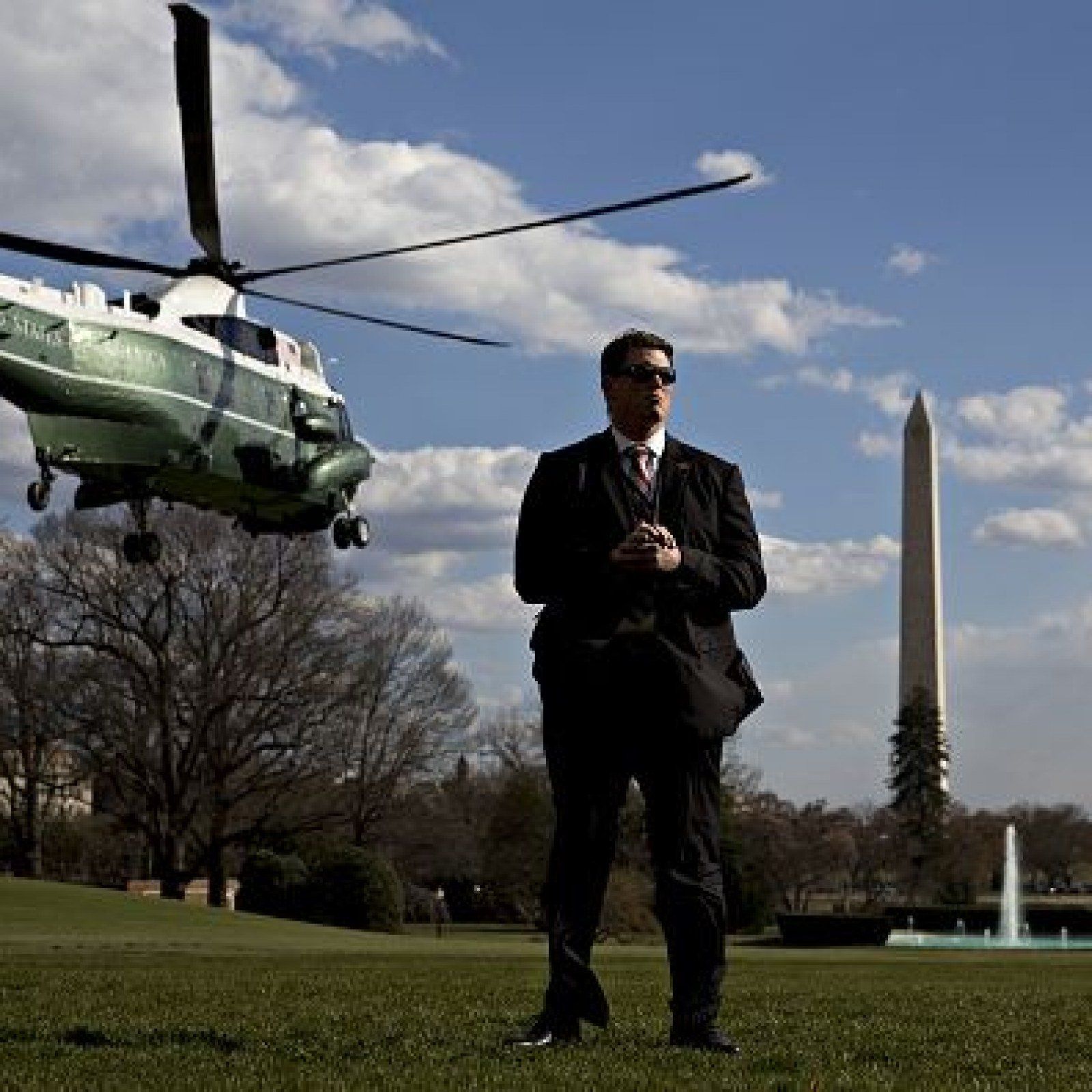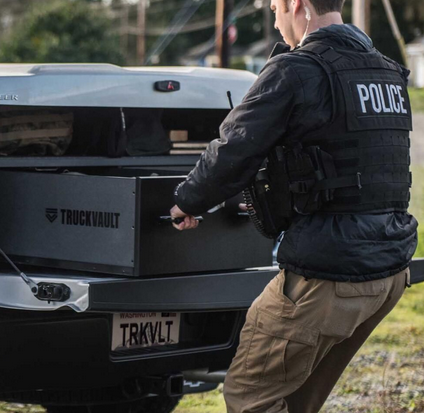My Academy Experience
January 19, 2021

There is always a certain amount of anxiety when preparing to attend an 1811 academy. That is normal! Preparation for your academy starts with carefully reading the orientation packet. Each agency has different policies & procedures for their trainees.
Overview & Location
Preparation for your academy means carefully reading the orientation packet. Each agency has different policies, orientation procedures and guidelines for their trainees. Virtually every 1811 academy is a live-in training program. Expect to stay at the facility for the entire duration of the academy with regular breaks on weekends and federal holidays. In general, trainees are not allowed to take any leave during the academy, nor are they allowed to depart the commuting area; limited exceptions are only granted in extenuating circumstances (i.e. funeral or immediate family wedding).
Expect to be issued a general uniform, basic training gear, and IT equipment upon arrival at the academy. The locations and accommodations vary by agency and time-frame. The FBI & DEA appear to assign a shared dorm room where-as FLETC CITP based academies typically provide single-occupancy military billeting style rooms; all fully furnished.
Most 1811 agencies (i.e. Secret Service, ATF, DSS, HSI, OIG) are located at Glynco, Georgia and involve the completion of the initial 3 month Criminal Investigator Training Program (CITP) and a respective agency follow-on academy (usually an additional 3 months). Some like HSI & ATF continue their add-on Academy program at FLETC Georgia; whereas others such as the Secret Service and Diplomatic Security Service arrange to complete their follow-on at a facility near Washington, DC. There are a few agencies that run completely in-house academy programs located at Quantico, VA, (DEA & FBI) and FLETC Maryland (USPIS).
Academy Environment
Good news, the 1811 academy environment is not set up to fail candidates. Remember, the respective agencies have invested a serious amount of time and financial resources to recruit, vet and select a crop of 24-30 special agent trainees, consequently they want candidates to succeed. Having said that, the cadre expect their trainees to be physically fit, professional, apply themselves, learn from the training and pass all required academic & practical exams.
Most 1811 training programs are NOT stress academies (That is not to say they cannot be stressful.) and their training programs mirror their mission areas. In general, you will be given an orientation, issued the required coursework, provided a schedule and expected to give 100% for all activities. The agencies all have some similarities in their curriculum (i.e. firearms, defensive driving, tactics, case law) but the second half typically focuses on their specialized area. For example, expect Secret Service to focus heavily on Protective Service Operations; whereas HSI candidates will begin specializing in Custom & Immigration related criminal laws. Conversely, DEA candidate will extensively train for clandestine drug labs, whereas FBI trainees often focus on counter-intelligence. Again, the respective mission areas provide insight into training focus.
Now some agencies (a minority) still prefer the stress model but it again varies. DEA is likely the most stressful 1811 academy and they keep up the boot camp atmosphere throughout their program. Conversely, DSS tends to step up the stress during their follow on portion as it concerns dangerous overseas environments. Other agencies such as HSI treat their academies as the "big-boy/girl" program throughout the duration. Regardless of the academy model, remember that you are being watched and evaluated by ALL instructors at ALL times both ON and OFF duty.
Pro Tips
Remember, you are at a federal law enforcement academy and must successfully complete all aspects in order to continue your hard-fought employment. Consequently, I would advise all future special agents to stop wasting time developing a checklist of creature comforts (Note: You are not being deployed to a combat zone nor are you held hostage. There is a department store near every single academy.) and instead focus preparation on what is important in your nascent careers. The academy is a government-run training environment; always be mindful of that fact.
First and foremost, ensure you can pass the fitness test with flying colors. Unfortunately, instructors have reported year after year that trainees routinely fail the initial fitness assessment test at the academies; which will usually earn trainees an automatic return ticket home to their old life and a place in the unemployment line (No exceptions). If you come physically prepared with a "warrior mindset," you will be ready for any academy experience.
Secondly, learn from all those before you that have failed. In general the academy "rejects" tend to be those that get in trouble off duty (i.e. DUI, Bar Fights), bomb a practical exam (i.e. firearms test, handcuffing test) or fail an academic or fitness test. The best way to avoid such outcomes is to use your brain and spend your free time studying/practicing your weak areas.
Lastly, academies are all about your attitude. Every academy curriculum is designed for trainees that have ZERO law enforcement experience and are based on the "crawl, walk, run" philosophy. If you come in with a good attitude, are willing to learn and apply yourself; you will be the ideal graduate. Conversely, if you come in as the "know-it-all" blow hard from XYZ police department, military branch or college; expect increased scrutiny from instructors who would rather not have you on their real life arrest team. A nail will always get hammered.
The 1811 academies are designed & structured for success but it is just as easy for the wrong candidates to fail out or get selected for failure.
My Academy Experience
I completed the Criminal Investigator Training Program (CITP) and the ICE Special Agent Training Program (Now HSI SAT) in early 2010s. This was my second 1811 and third federal law enforcement academy (prior military). I chose HSI because they gave me my preferred location in advance. My class consisted of 80% prior law enforcement candidates and 6 additional prior 1811s (DEA, USPIS, OIG) who had similarly made the switch to HSI. The average starting age was early to mid 30s.
As HSI candidates (class of 24), we arrived a day early at FLETC in order to have the HSI only orientation in full business attire. This basically involved the senior HSI cadre setting their expectations for trainees since they would not see us again until after our completion of CITP (We did however have an assigned HSI mentor throughout the duration, who facilitated administrative issues, schedule changes, gear, etc.). The following day we were introduced to the remaining portion of our CITP class; which included trainees from various OIGs, FDA, BLM and Pentagon Force Protection Agency.
The CITP portion was relatively fast moving and eventually became a grind. A typical day was 10+ hours and often involved firearms, tactics, academics & defensive driving; all back to back with minimum time for lunch. As a prior 1811, I did not find it particularly stressful but the schedule did take up the majority of our time and energy. Eventually, the repetitive sequence of classroom exams, fitness courses, practical tests (ie handcuffing, OC), and final firearms qualifications built up to an exercise; which involved a mock case that required my assigned team to conduct surveillance & an undercover operation; followed by a mock search warrant and subject interview. In general, CITP instructors were detailed from a variety of backgrounds (i.e. HSI, NCIS, DSS, State & Local) and were fully supportive of students in a professional learning environment.
Immediately following completion of CITP, we said goodby to our non-HSI classmates and started our agency add-on (Now called HSI SAT). This portion was staffed exclusively by HSI special agents and focused on HSI standards, procedures, and mission areas. Trainees were now required to learn and pass the HSI firearms and defensive tactics program. Additionally, HSI also mandated regular physical fitness classes (although the official fitness test was not in place at that time). A significant bulk of our time was spent learning about Customs & Immigration related investigations (some of which were incredibly complex), since that is HSI's primary area of expertise. Additionally, HSI cadre constantly watched candidates to evaluate our attitudes and professionalism. Although our entire class graduated, we were made aware early on that three trainees were kicked out of the previous academy; a warning that obviously did not go unheeded. We did have four students that struggled with the firearms qualifications and the required obstacle course; they took the initiative and asked instructors for additional help, which they received and subsequently passed with flying colors.
The FLETC campus in Georgia is by far the largest law enforcement training center (1600 + acres) in the world and is amazing in size and scope. It includes 26+ firearm ranges, 16+ driving courses, a 34 building mock neighborhood (built 2013), and a three acre physical techniques complex (including several fitness facilities). The campus is also shared by numerous non-1811 federal agencies (to include FAMs, ERO, CBP, etc.). It takes a few days to get oriented to FLETC and the *wrong* dorm location can easily cost you an extra 10 minutes of walking time; many chose bikes to get around (I did not).
I did not bring my vehicle and was able to manage just fine by planning my errands and developing good friendships among my classmates. In general, when my classmates with vehicles (typically from the East Coast) went to run errands, they would invite along folks such as myself. Similarly, I always received invites to join others for dinner or drinks on weekends. On a few federal holidays, some of us managed trips to various sites in Florida and South Carolina. All in all, I did not find the need to have a vehicle; especially given the scarce parking and strict rules which prohibit basic trainees from driving to class.
At the end of the six months, I must admit to being thoroughly exhausted by the live-in academy training environment and ready to get back to a normal life. The upside was that I had six months of savings in my pocket, a badge & gun; and the enviable job title of Special Agent. Well worth the trouble.
For those interested in learning more about the differences in the Academy experiences, check out this below YouTube Video.









